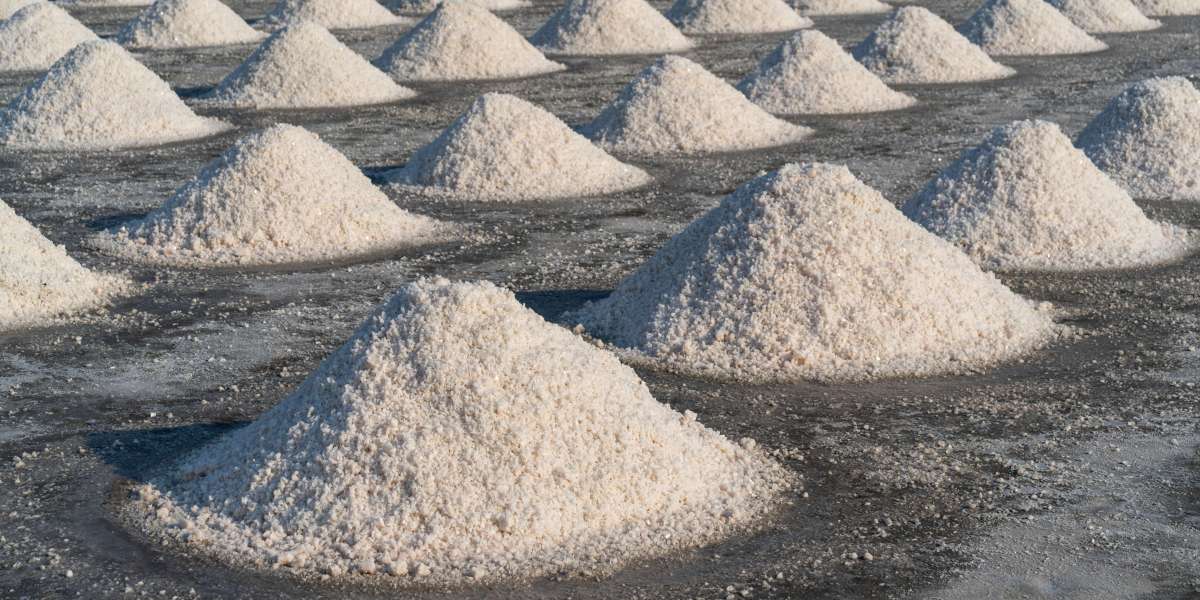Salt, an essential mineral used globally for various purposes, from cooking to industrial applications, is one of the most traded commodities in the world. Among the leading salt exporters, India stands out for its significant contributions to the global salt market. This article delves into the world's top salt exporters, with a particular focus on salt exporters in India.
The Importance of Salt in Global Trade
Salt has been a vital commodity throughout history, used not only as a seasoning and preservative but also in various industrial processes. Its significance in global trade cannot be overstated. Countries with abundant salt resources have capitalized on this by becoming major players in the international salt market.
Top Salt Exporting Countries
1. India
India is one of the largest salt producers and exporters in the world. The country’s diverse geographical landscape, including vast coastal areas and salt pans, makes it an ideal location for salt production. The primary regions for salt production in India are Gujarat, Tamil Nadu, and Rajasthan.
Gujarat: The Salt Hub of India
Gujarat, particularly the Kutch region, is the heart of India's salt production. The region’s arid climate and expansive salt pans contribute to its high yield. Major companies based in Gujarat, such as Tata Chemicals and GHCL, are prominent players in both domestic and international markets.
Tamil Nadu and Rajasthan
Tamil Nadu and Rajasthan also contribute significantly to India's salt production. The coastal areas of Tamil Nadu and the arid regions of Rajasthan provide favorable conditions for salt extraction. These states have established a robust supply chain that supports both local consumption and export.
2. China
China is another leading salt exporter, with a substantial portion of its salt production derived from both sea salt and rock salt. The country's extensive coastline and rich salt mines facilitate large-scale production. Chinese salt exporters play a crucial role in meeting the global demand for industrial and edible salt.
3. United States
The United States is known for its high-quality rock salt and evaporated salt. Major salt-producing states include Louisiana, Texas, and New York. The U.S. exports salt primarily for industrial use, such as de-icing roads and manufacturing chemicals.
4. Germany
Germany’s salt production is primarily based on rock salt mining. The country is renowned for its high-purity salt, which is used in various industrial applications. German companies like K+S AG are key players in the global salt market.
5. Australia
Australia’s salt industry is centered around solar evaporation from seawater. The country’s vast salt flats, particularly in Western Australia, contribute to its significant salt exports. Companies like Dampier Salt operate some of the largest solar evaporation facilities in the world.
Salt Exporters in India: Leading the Charge
India’s prominence as a top salt exporter is due to several factors, including favorable climatic conditions, extensive coastal areas, and a well-established infrastructure. Indian salt exporters have a competitive edge in the global market, thanks to their ability to produce high-quality salt at competitive prices.
Key Players in the Indian Salt Industry
Tata Chemicals
Tata Chemicals is one of the largest and most well-known salt producers in India. The company’s Mithapur plant in Gujarat is a significant contributor to its salt production. Tata Salt, the brand name under which it sells edible salt, is a household name in India and is also exported to various countries.
GHCL Limited
GHCL Limited is another major player in the Indian salt industry. With extensive operations in Gujarat, GHCL produces a wide range of salt products, including industrial and edible salt. The company has a strong export network, catering to markets in Asia, Africa, and the Middle East.
Nirma Limited
Nirma Limited, a well-known name in India’s consumer goods market, also has a substantial presence in the salt industry. The company’s salt production facilities in Gujarat contribute significantly to its overall revenue. Nirma exports both industrial and edible salt to several countries.
The Role of the Indian Government
The Indian government has played a crucial role in supporting the salt industry through various initiatives and policies. The Salt Commissioner’s Organization oversees the regulation and development of the salt industry, ensuring quality standards and promoting exports.
Advantages of Indian Salt
Indian salt is known for its high quality and purity, which makes it highly sought after in the international market. The natural production methods, combined with stringent quality control measures, ensure that Indian salt meets global standards.
Challenges Faced by Salt Exporters in India
Despite its prominent position in the global market, the Indian salt industry faces several challenges:
Environmental Concerns
Salt production, particularly through solar evaporation, can have significant environmental impacts. Issues such as soil degradation and water pollution need to be addressed to ensure sustainable production practices.
Climate Change
Climate change poses a threat to salt production in India. Changes in rainfall patterns, rising temperatures, and sea-level rise can impact the salt pans and coastal areas, potentially reducing the yield.
Competition from Other Countries
While India is a leading salt exporter, it faces stiff competition from countries like China, the United States, and Australia. Maintaining a competitive edge requires continuous innovation and improvement in production techniques.
The Future of Salt Exports from India
The future of salt exports from India looks promising, with several initiatives aimed at improving production efficiency and expanding market reach. Technological advancements, such as the use of drones and automated systems in salt pans, can enhance productivity and reduce environmental impact.
Expanding Global Presence
Indian salt exporters are exploring new markets to expand their global presence. Efforts to penetrate markets in Europe, North America, and Southeast Asia are underway, driven by the high demand for quality salt.
Sustainable Practices
Adopting sustainable practices is crucial for the long-term success of the salt industry. Companies are increasingly focusing on reducing their environmental footprint and implementing eco-friendly production methods.
Government Support
Continued support from the Indian government, in terms of favorable policies and infrastructure development, will be vital for the growth of the salt export industry. Initiatives to improve logistics and streamline export processes can further enhance India’s competitiveness in the global market.
Conclusion
India's position as a leading salt exporter is a testament to its rich natural resources, robust infrastructure, and the dedication of its salt producers. As the global demand for high-quality salt continues to grow, "salt exporters in India" are well-positioned to meet this demand through innovation, sustainable practices, and strategic market expansion. By addressing challenges and leveraging opportunities, Indian salt exporters can continue to play a pivotal role in the global salt trade, contributing to the country's economic growth and global trade dynamics.








